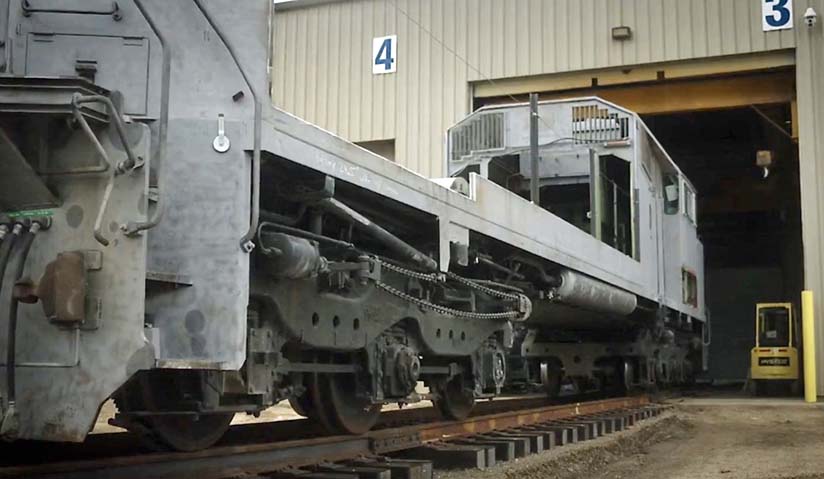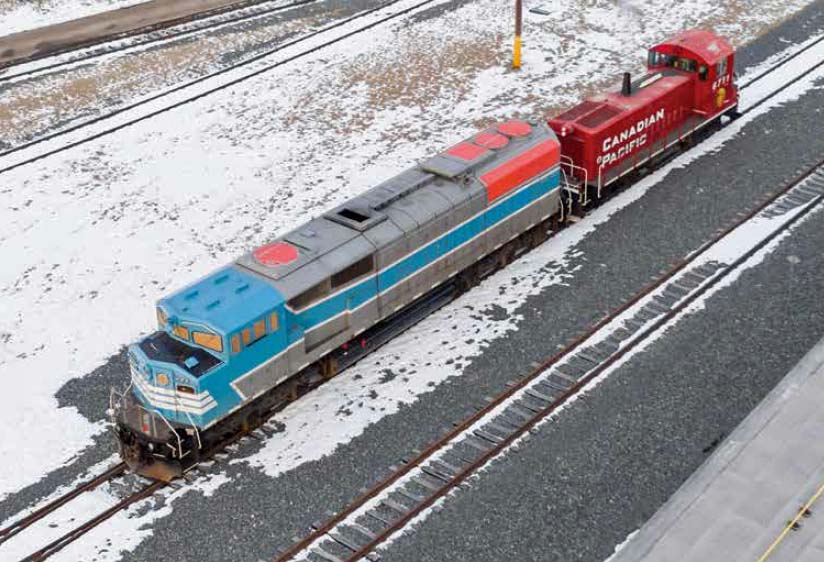
America
Calgary Alberta - Canadian Pacific Railway (CP) has increased its order of fuel cells to "significantly expand" its hydrogen
locomotive program, according to Ballard Power, the railway's partner on the zero-emissions project.
Vancouver-based Ballard and CP announced a partnership last March to convert diesel locomotives to hydrogen power using fuel cells and batteries to power
electric traction motors.

Ballard said on Wednesday that CP has requested eight additional 200 kW fuel cell modules, bringing its total to 14, in order to expand production from
one to three locomotives expected to be delivered this year.
"In expanding this ground breaking project, CP is demonstrating its commitment to combating climate change through transformative technology," CP
CEO Keith Creel stated in a news release.
CP plans to refine the conversion of diesel-electric powertrains to hydrogen-electric powertrains across three categories of locomotives, which collectively
represent the majority of those used in North America.
The Calgary-based railway has made improving the fuel efficiency of its trains a key tenet of its commitment to fight climate change.
Creel said on CP's most recent quarterly conference call that the company has improved its fuel efficiency by 20 percent over the last decade.
Currently, the vast majority of North American railway operators run on diesel power.
Ballard estimates that by 2030 the total addressable market for hydrogen-electric trains will reach $4 billion.
The company has already used its hydrogen power modules in the UK's first full-sized train refurbished with hydrogen power.
It has also partnered with companies, including German industrial conglomerate Siemens (SIEGY), on hydrogen rail projects in Europe and Asia.
"The expansion of CP's Hydrogen Locomotive Program is illustrative of the confidence in Ballard's fuel cell technology and the important role hydrogen
fuel cells will play in de-carbonizing heavy-duty motive applications, such as freight locomotives," Ballard CEO Randy MacEwen added in the
release.
Ballard said the project's expansion is partially supported by $15 million in funding from Emissions Reduction Alberta (ERA) as part of its Shovel-Ready
Challenge announced late last year.
Jeff Lagerquist.
(there was no image with original article)
(usually because it's been seen before)
provisions in Section 29 of the Canadian
Copyright Modernization Act.
